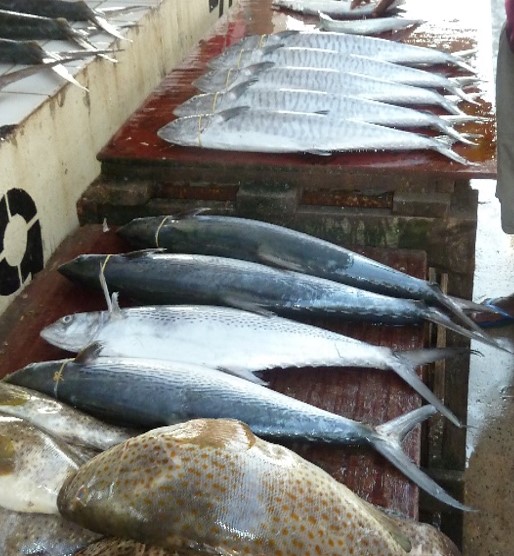The development of this 10-year Tuna Fisheries Management Plan (TFMP), follows the FAO Ecosystem Approach to Fisheries Management and was supported under a World Bank regional fisheries programme, The South West Indian Ocean Fisheries Governance and Shared Governance Program (SWIOFish). The objective of the TFMP was to help achieve greater community and national economic benefit, while maintaining and / or restoring fish stocks at optimal productive levels as well as preserving related marine biological diversity. This management plan forms an adaptive framework that should be regularly reviewed and updated to incorporate findings from latest research and other sources in a timely manner to inform decision making.
The TFMP focuses on the main tuna and tuna-like species found in United Republic of Tanzania’s waters, the main bycatch species associated with these fisheries and other large migratory pelagic species commonly caught in Tanzanian waters. The management plan covers the artisanal fleet (net and line), the semi-industrial fleet (longline) and the industrial fisheries (variety of commercial gears, longline, pole and line or purse seine as the most common). The key management bodies responsible for implementation of the plan are the Deep Sea Fishing Authority, the Ministry of Blue Economy and Fisheries (Zanzibar) and the Ministry of Livestock and Fisheries (Mainland).
Key objectives underpinning this TFMP have been identified through stakeholder consultation and expert opinion. In total, there are 13 Specific Objectives:
- Stock Status;
- Stock Assessment;
- Environmental Impacts;
- Collaboration and Regional Cooperation;
- Development of the Offshore and Artisanal Sectors;
- Enhanced Trade, Marketing, Quality and Safety;
- Socio-economics (Artisanal);
- Economics (Offshore);
- Monitoring, Control and Surveillance;
- Monitoring and Evaluation;
- Capacity Building,
- Education and Outreach
- ; National Legislation,
- Policy and Regulations; and
- International Engagement.
Within each Specific Objective, a number of strategies were defined that should be addressed within the management plan to achieve the objectives of the TFMP. As a large number of potential issues were raised in the tuna fishery sector through the literature review and stakeholder consultation process, a qualitative risk assessment was undertaken. There is a practical and financial limit to the number of issues that can be addressed within the immediate 5-year management timeframe, the qualitative risk assessment was used to prioritise specific issues.

